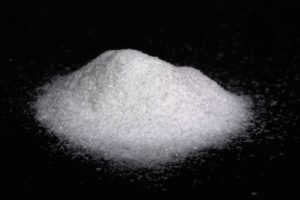 Once again artificial sweeteners are in the news, and not in a good way. New research found that the sugar substitute erythritol, at a concentration typically found in an artificially sweetened beverage, has harmful effects on the small blood vessels of the brain.
Once again artificial sweeteners are in the news, and not in a good way. New research found that the sugar substitute erythritol, at a concentration typically found in an artificially sweetened beverage, has harmful effects on the small blood vessels of the brain.
Erythritol crosses the blood brain barrier and interacts with the brain's cerebrovasculature (the blood vessels in the brain, including the arteries, veins, and capillaries that supply blood and nutrients to the brain tissue). This study focused on the smallest blood vessels (microvascular) in the brain. And yes, found that the amount or erythritol in 1 diet beverage has adverse effects at a cellular level on these blood vessels.
This study was done in a lab setting (and not directly on humans), but research results match up with other studies on erythritol. Other studies already found that erythritol increases the risk of heart attacks, heart disease, strokes, as well as blood clot formation. This study's results give an explanation for why there is a increased risk of these brain vascular (blood vessel) events happening.
Erythritol is found in some beverages advertised as low or zero calorie (e.g., Monster Zero energy drinks, Blue Sky Zero Sugar soda, Red Bull Zero) and in some low calorie foods (e.g., Halo Top low-calorie ice cream). Read ingredient lists on labels!
From Medical Xpress: Major sugar substitute found to impair brain blood vessel cell function, posing potential stroke risk
Erythritol may impair cellular functions essential to maintaining brain blood vessel health, according to researchers at the University of Colorado Boulder. Findings suggest that erythritol increases oxidative stress, disrupts nitric oxide signaling, raises vasoconstrictive peptide production, and diminishes clot-dissolving capacity in human brain microvascular endothelial cells.
Erythritol has become a fixture in the ingredient lists of protein bars, low-calorie beverages, and diabetic-friendly baked goods. Its appeal lies in its sweetness-to-calorie ratio, roughly 60–80% as sweet as sucrose with a tiny fraction of the energy yield, and its negligible effect on blood glucose.
Concerns about erythritol's safety have escalated following epidemiological studies linking higher plasma concentrations with increased cardiovascular and cerebrovascular events. Positive associations between circulating erythritol and incidence of heart attack and stroke have been observed in U.S. and European cohorts, independent of known cardiometabolic risk factors. A causal mechanism for the link has remained elusive.
In the study, "The Non-Nutritive Sweetener Erythritol Adversely Affects Brain Microvascular Endothelial Cell Function," published in the Journal of Applied Physiology, researchers designed in vitro experiments to test the cellular consequences of erythritol exposure on cerebral endothelial function.
Human cerebral microvascular endothelial cells were cultured and exposed to an amount of erythritol equivalent to consuming a typical beverage. Experimental conditions included five biological replicates per group.
Cellular assays measured oxidative stress, antioxidant protein expression, nitric oxide bioavailability, endothelin production, and fibrinolytic capacity. Capillary electrophoresis immunoassay and ELISA were used to quantify expression of superoxide dismutase-1 (SOD-1), catalase, endothelial nitric oxide synthase (eNOS), phosphorylated eNOS, endothelin-1 (ET-1), and tissue-type plasminogen activator (t-PA).
Cells exposed to erythritol exhibited a substantial increase in oxidative stress. Reactive oxygen species levels rose by approximately 75% relative to untreated controls. Antioxidant defense markers were also elevated, with SOD-1 expression increasing by approximately 45% and catalase by approximately 25%.
Nitric oxide production declined by nearly 20% in response to erythritol. Although total eNOS expression remained unchanged, phosphorylation at the Ser1177 site, which is associated with enzymatic activation, fell by approximately 33%. In contrast, phosphorylation at the inhibitory Thr495 site increased by approximately 39%.
In another test, t-PA release in response to thrombin stimulation was blunted in erythritol-treated cells, indicating reduced fibrinolytic responsiveness.
The researchers conclude that erythritol exposure disrupts multiple mechanisms vital to maintaining cerebral endothelial health. Although results are limited to acute in vitro conditions, the findings align with prior epidemiological associations between erythritol and elevated stroke risk.
